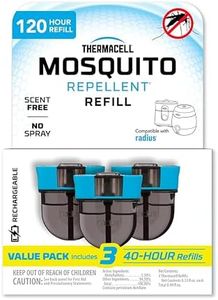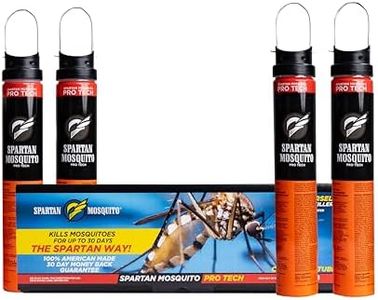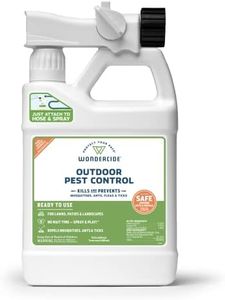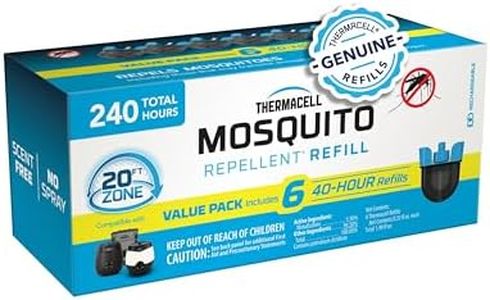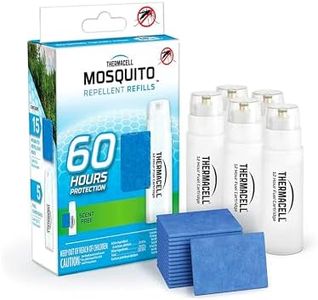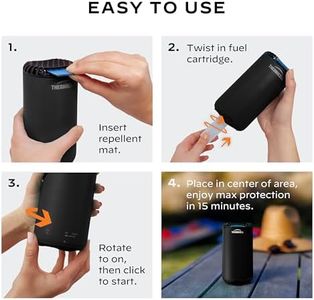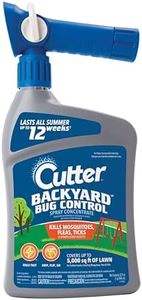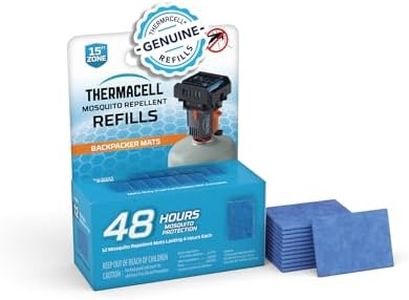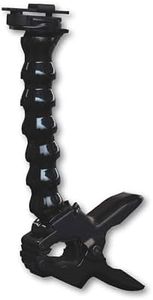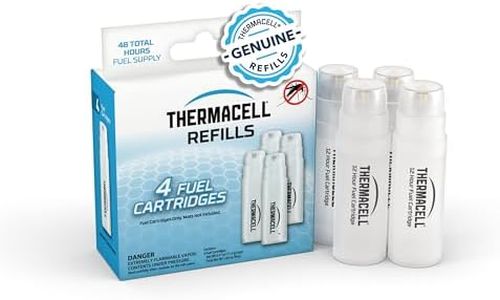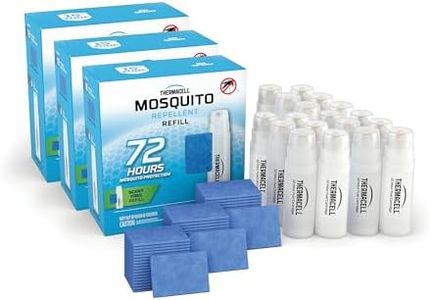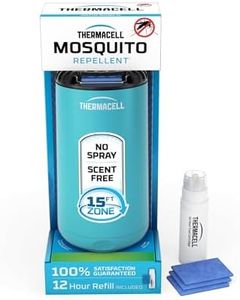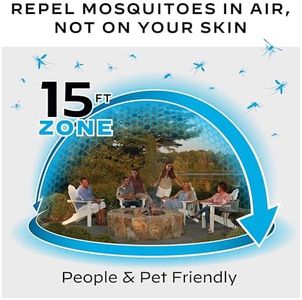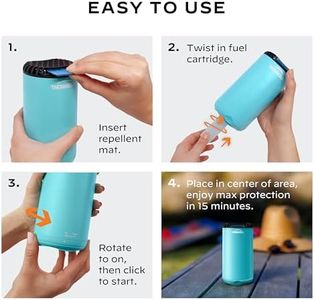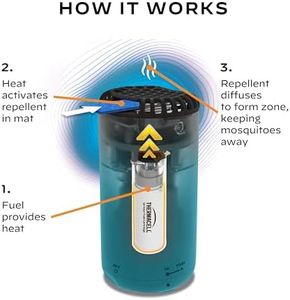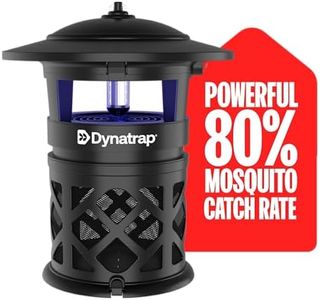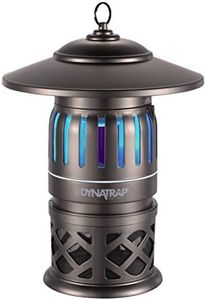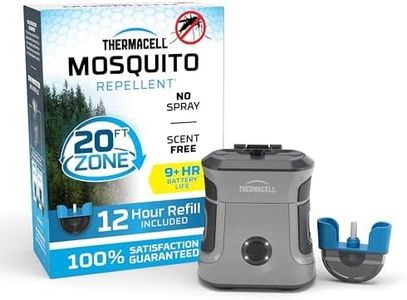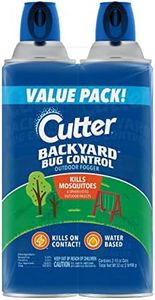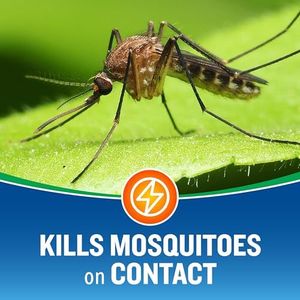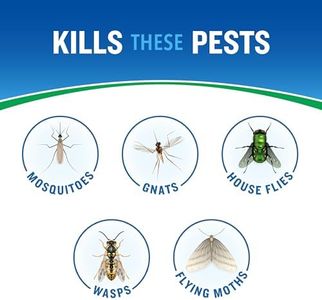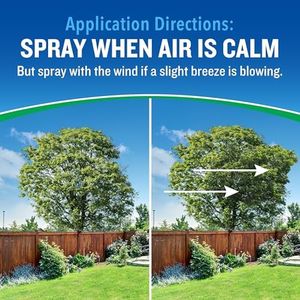10 Best Yard Mosquito Repellents 2025 in the United States
Winner
Thermacell Rechargeable Mosquito Repeller Refills; Advanced Repellent Formula Provides 20 foot Protection Zone; Compatible with Thermacell E-Series & Radius Only; No DEET, Spray or Flame
The Thermacell Rechargeable Mosquito Repeller Refills offer a wide coverage area of up to 20 feet, making them suitable for small to medium-sized outdoor spaces. The device provides continuous mosquito protection for up to 5.5 hours per charge, which is convenient for extended outdoor activities. The refills are compatible with Thermacell E-Series and Radius devices, ensuring flexibility in usage.
Most important from
16010 reviews
Spartan Mosquito Pro Tech - 1 Acre Pack 4 Tubes (2 Boxes) 100% American Made
The Spartan Mosquito Pro Tech is an effective mosquito repellent designed for yard use, suitable for areas up to one acre. It comes in a pack of four tubes which users can easily set up themselves. One of its significant benefits is that it offers protection against mosquitoes that carry serious diseases like West Nile Virus and Zika Virus for up to 30 days. This makes it a practical choice for those seeking long-lasting protection in their backyard or garden.
Most important from
11292 reviews
Wondercide - EcoTreat Ready-to-Use Outdoor Pest Control Spray with Natural Essential Oils - Mosquito, Ant, Insect Repellent, Treatment, and Killer - Plant-Based - Safe for Pets , Kids - 32 oz
The Wondercide Outdoor Pest Control Spray is designed to kill and repel a wide range of pests, including mosquitoes, ants, fleas, and ticks. With a coverage area of up to 5,000 square feet, it is suitable for treating large outdoor spaces like lawns, gardens, and patios.
Most important from
8728 reviews
Top 10 Best Yard Mosquito Repellents 2025 in the United States
Winner
9.9 score
Thermacell Rechargeable Mosquito Repeller Refills; Advanced Repellent Formula Provides 20 foot Protection Zone; Compatible with Thermacell E-Series & Radius Only; No DEET, Spray or Flame
Thermacell Rechargeable Mosquito Repeller Refills; Advanced Repellent Formula Provides 20 foot Protection Zone; Compatible with Thermacell E-Series & Radius Only; No DEET, Spray or Flame
Chosen by 1384 this week
Spartan Mosquito Pro Tech - 1 Acre Pack 4 Tubes (2 Boxes) 100% American Made
Spartan Mosquito Pro Tech - 1 Acre Pack 4 Tubes (2 Boxes) 100% American Made
Wondercide - EcoTreat Ready-to-Use Outdoor Pest Control Spray with Natural Essential Oils - Mosquito, Ant, Insect Repellent, Treatment, and Killer - Plant-Based - Safe for Pets , Kids - 32 oz
Wondercide - EcoTreat Ready-to-Use Outdoor Pest Control Spray with Natural Essential Oils - Mosquito, Ant, Insect Repellent, Treatment, and Killer - Plant-Based - Safe for Pets , Kids - 32 oz
DynaTrap DT1050-TUNSR 1/2 Acre Mosquito & flying Insect Trap – Kills Mosquitoes, Flies, Wasps, Gnats, & Other Flying Insects - Bug Zapper Alternative - Tungsten
DynaTrap DT1050-TUNSR 1/2 Acre Mosquito & flying Insect Trap – Kills Mosquitoes, Flies, Wasps, Gnats, & Other Flying Insects - Bug Zapper Alternative - Tungsten
Our technology thoroughly searches through the online shopping world, reviewing hundreds of sites. We then process and analyze this information, updating in real-time to bring you the latest top-rated products. This way, you always get the best and most current options available.

